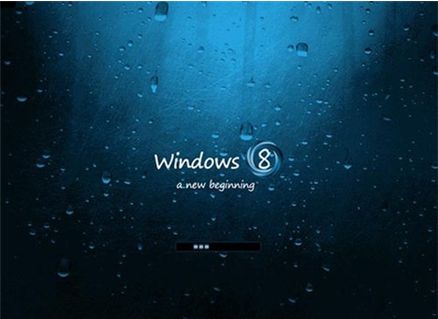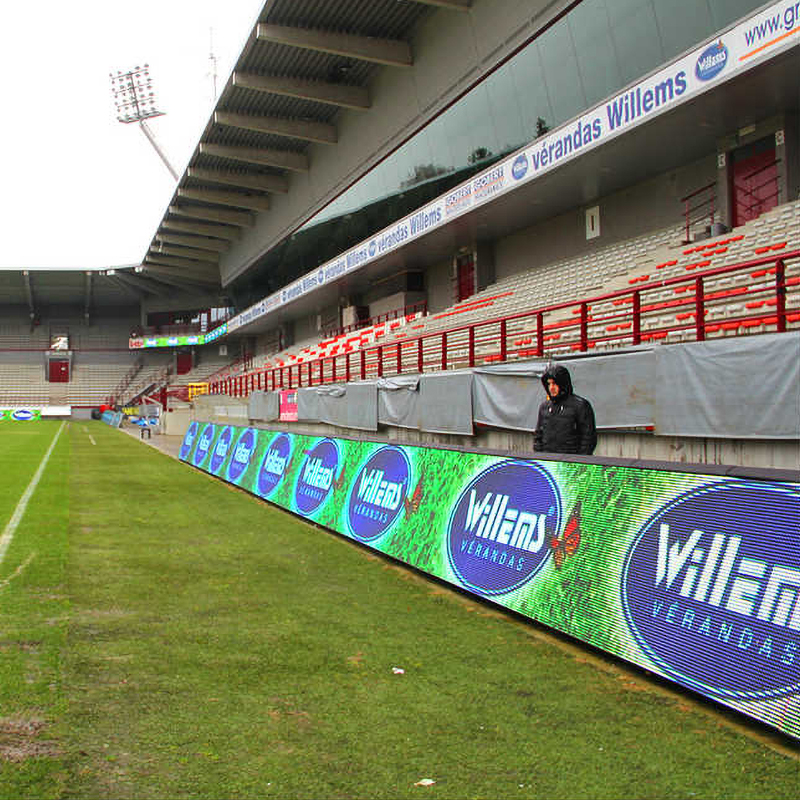 Beijing October 23 news, according to foreign media reports, Microsoft will be released on the Windows 8 operating system this Friday, but the industry have pointed out that Windows 8 is more of a consumer-level platform, lack of enough attraction at the corporate user level force. Most companies will choose to be careful with Windows 8 and will not configure it the first time.
Beijing October 23 news, according to foreign media reports, Microsoft will be released on the Windows 8 operating system this Friday, but the industry have pointed out that Windows 8 is more of a consumer-level platform, lack of enough attraction at the corporate user level force. Most companies will choose to be careful with Windows 8 and will not configure it the first time. The following is the full text of the article:
Once upon a time, Microsoft's release of the new Windows operating system has become a top priority for many companies' technical departments. But the original scene was gone forever. The Windows 8 operating system conference that Microsoft will hold this Friday is likely not to be taken seriously by most companies, and some industry insiders point out that many companies may never choose to configure the system.
The Windows 8 system seems to want to provide each user community with some of the features they want: touch-screen functionality for tablet enthusiasts, new gorgeous interface designs for young people, and compatibility with traditional desktop software Multiple system versions.
Enterprise upgrade lacks motivation
However, many companies stated that none of these features provided sufficient reason for them to adopt Windows 8. Many companies have even been using Windows XP, and so far no Windows 7 system has been configured.
Doug Johnson, who heads the American Bankers Association's risk management policy affairs, pointed out: "It's not a corporate platform. It's better to say that Windows 8 is more like a consumer-oriented platform. Windows 8 There is no new business service function, so business users are less interested in this aspect.†The American Bankers Association is the world’s largest buyer of technology products.
For most of the past two decades, comments like this may trigger panic at Microsoft headquarters. However, the environment has changed. The emergence of Windows 8 reflects the change in the technology industry. The right to decide on the rise and fall of a technology product begins to be dominated by the consumer market.
However, this does not mean that Microsoft management has publicly announced that their new flagship products have neglected the needs of business users in order to focus on the consumer market.
Ron Markezich, head of Microsoft's corporate and partner group, pointed out: "The boundaries between consumers and corporate customers are now blurring. The main motivation for corporate customers looking to upgrade to Windows 8 is that they can simultaneously Take care of your tablet and PC."
However, Microsoft’s main goal is to prove that it can master the new touchscreen optimization and mobile computing technologies led by Apple and Google. Microsoft's colorful and dynamic advertising campaign for Windows 8 also targets audiences as young people, while the Surface tablet is directly positioned as a consumer product.
The test version is flat
Although the beta version of Windows 8 has been released for more than a year, corporate customers' attitude toward the product has always been relatively flat.
Last year, German car maker Volkswagen upgraded only 60,000 PCs to Windows 7. At present, the company has not planned to upgrade the computer to Windows 8 in the near future.
Martin Eickhoff, head of Volkswagen IT, said his team is "very happy to evaluate the new features of the Windows 8 tablet operating system," but unless it sees more potential, it will not be easily upgraded.
For companies, this situation is very common. In general, companies spend 12 months to 18 months testing new operating systems. This means that they will usually upgrade to the latest version within 2-3 years of the new release. However, Microsoft's failure Vista.
However, for Windows 8, this law may not continue.
Michael Silver, an analyst at technology market research firm Gartner, predicts that only a few companies will configure it during the Windows 8 lifecycle. Shiilwo pointed out: "We think 90% of large companies will not deploy Windows 8 extensively. We expect that only 20% of these companies will use Windows 8 at most."
Windows Day Xishan
The decline of Windows may not be a big problem for Microsoft.
On the one hand, 40% of Microsoft's total revenue comes from its long-term authorized software use contracts with companies, government agencies, and universities. Usually these customers have the right to upgrade to the latest version. The important thing is that for large customers, Microsoft basically charges license fees for many years without specifying a version.
On the other hand, although PC sales usually determine Microsoft's profitability, the financial importance of Windows to Microsoft is gradually declining. Five years ago, Windows accounted for 30% of Microsoft's revenue, compared with 25% last year.
At least in the short term, Microsoft is relying more on Office products and its rapidly growing server and tools department than Windows in terms of success in sales for corporate customers.
Selective deployment
Currently, the first organization to use Windows 8 is Seton Hall University in New Jersey, USA. With Microsoft's funding, the university has already distributed Windows 8 preview tablets and laptops to its first and third year students.
Stephen Landry, chief information officer (CIO) at Syracuse University, points out: "For me, the benefit of upgrading to Windows 8 is that the interface can be easily touch-screened. Such an update will help There are many devices on campus.
Landry said that after a brief training, his students like Microsoft's new operating system. However, he admits that many of his colleagues in higher education have not fully prepared for such a rapid upgrade to Windows 8.
Landry pointed out: "A lot of CIOs say they are not in a hurry to completely upgrade to Windows 8. Many people hold a wait-and-see attitude. They think that 'upgrade means to do a lot of work, such as configuring Microsoft IT management.' System Center, etc. 'There are still a lot of CIOs who said they did not see the benefits of the upgrade, so continue to choose to wait and see."
Steven Hanna, CIO of Kennametal Inc., a maker of industrial parts and tools, said that his company has just upgraded to Windows 7, and that there has been no major upgrade to Windows 8 in the near future. However, he said that it may be possible to selectively upgrade some employees who have work needs, such as sales representatives who often use touch-screen devices.
Hannah pointed out: "Mobility is very important to sales people. The mobile office has a significant role in promoting our company. Before that, we have used the iPad as a pilot. Now we are very happy to see that the Windows tablet device will also be available."
The configuration to the salesperson is probably the most likely way for Windows 8 to enter the company. Even so, the road to popularity of Windows 8 is not easy, because Windows 8 actually has two versions.
The standard Windows 8 device is configured with an Intel Corp. x86 chip that can run legacy Microsoft applications and seamlessly connect with the company's network and security systems just like any Windows PC. The other is Windows RT based on ARM chip architecture, such as Microsoft's new Surface tablet. This system will not be able to run Microsoft's traditional applications and will require related integration work.
Windows XP users are difficult to migrate
Even with the introduction of Windows 8, the first problem that Microsoft should solve is to allow consumers to abandon the Windows XP operating system that has been on the market for as long as ten years. According to statistics, about 41% of the world's 1.5 billion PCs are still running Windows XP. In the last three years, Microsoft has urged enterprise customers to upgrade to Windows 7, but at the same time also expressed that it does not want Windows 8 to cause corporate users to give up updating to Windows 7.
This means that in the next few years, many companies will even downgrade their newly purchased PCs to Windows 7, not Windows 8.
However, if people start using Microsoft's Surface tablet at work, or any other Windows 8 device, Microsoft also hopes that corporate IT managers will accept it in an open manner.
Michael Cherry, an analyst with Directions on Microsoft, said: "Some companies will love to use Windows 8 and Intel architecture tablets because they are easy to manage. However, they will be disappointed with the Windows RT tablet. Because this product is not even as easy to manage as the iPad." Directions on Microsoft is an independent consultancy that helps customers better understand Microsoft.
Football Stadium Advertising LED Screen
This series is a classic football field advertising LED Screen, which is specially used for advertising display in various stadiums, such as football fields, basketball courts, badminton courts, tennis courts, volleyball courts and other competitive sports halls. Football Stadium Advertising LED Screen with IP65 waterproof level, excellent anti-collision ability, can resist the impact of balls. High brightnesee makes good perfomance even under sunshine. Good protection design on top of cabinet with thick anti-collision cotton.

Football Stadium Advertising Led Screen,Led Panel Display,Led Video Panel, Football Cup Led Display Billboards
Guangzhou Cheng Wen Photoelectric Technology Co., Ltd. , https://www.cwdisplay.com